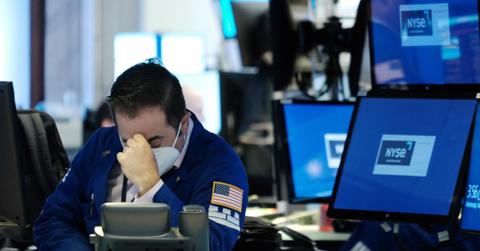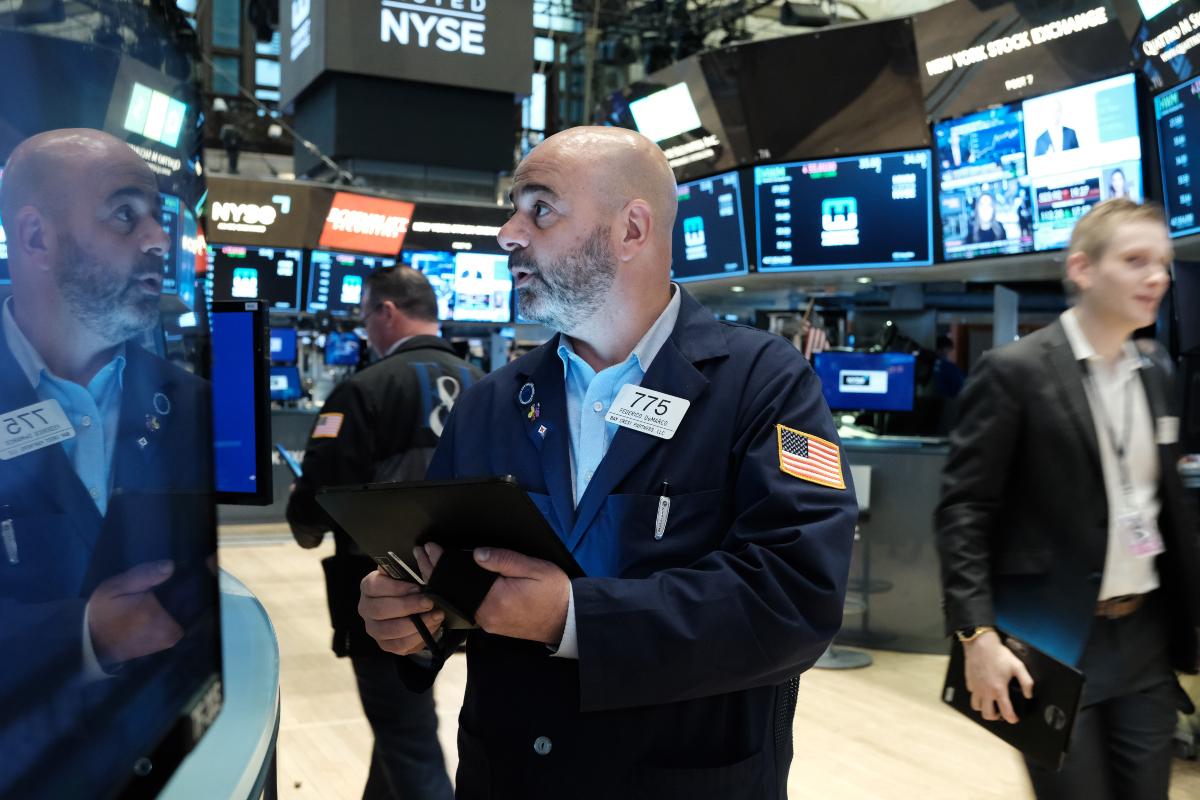Follow Warren Buffett and Get "Greedy" Amid the Stock Market Crash
While some analysts forecast a further crash in U.S. stocks, others see a buying opportunity. Should you buy stocks after the tech sell-off?
May 25 2022, Published 11:31 a.m. ET
If you invest in stocks and follow financial news, you would have noticed that they're getting gloomier by the day. There are talks ranging from a recession to hyperinflation and stagflation.
The pessimism is reflected in stocks as well. The tech-heavy Nasdaq continues to plunge and is deep in the bear market rally. The Dow Jones Index has now closed with losses for eight consecutive weeks, the worst losing streak since 1923. While some analysts forecast a further crash in U.S. stocks, others see a buying opportunity. Should you buy stocks after the tech sell-off?
Why are stocks falling?
Stocks are falling for multiple reasons. Inflation is running at a multi-decade high which is hurting consumption, as was highlighted by major retail companies. Even corporate America is now worried about a slowdown and we’ve seen companies slow down hiring as well as lower their ad spending.
Then we have the risk-off sentiment after the Russian invasion of Ukraine. The broader market valuations have also taken a beating as the Federal Reserve has begun unwinding the accommodative monetary policy. To sum it up, concerns over economic growth, rising interest rates, high valuations, and the general risk-off sentiment are taking a toll on stocks.
Why are tech stocks falling in 2022?
Tech stocks are underperforming the markets by a wide margin in 2022. The downwards price movement in Cathie Wood’s ARK Innovation ETF (ARKK) is a testimony to how bad things have been for growth and tech stocks.
The steep fall in tech stocks isn't hard to comprehend. A lot of these companies, especially the “stay-at-home” winners, are facing a severe slowdown in demand. The kind of valuations some of the tech stocks were trading at assumed that their sales would continue to grow at a much faster rate than they did before the onset of the COVID-19 pandemic.
As things turned out, that isn't the case. Also, rising interest rates are a dampener for growth stocks. Since future earnings are discounted at higher rates amid rising bond yields, rising rates make them less valuable in today’s dollar terms.
Will stocks go lower?
Stocks might head even lower if the U.S. economy enters into a recession. There aren't any easy fixes to the current macro weakness. The Fed and the government are caught between a rock and a hard place. They can't increase spending or lower rates since it would further fuel inflation. They can't tighten the screws too much because it would make the slowdown worse.
Should you buy stocks now?
The economic picture might look scary. However, as Warren Buffett’s famous quote goes, one has to be “fearful when others are greedy, and greedy when others are fearful." Incidentally, Buffett has poured billions into buying stocks in 2022 so far after five quarters of being a net seller.
If you are a long-term investor, the recent fall in stocks looks like a good opportunity to own quality beaten-down names. There are opportunities available in growth stocks, and even some dividend stocks, if you're a risk-averse investor.
Investors can consider these stocks.
In the FAANG space, Amazon and Alphabet look like good stocks after the crash. Apple looks like another stock worth watching. Even Buffett bought more Apple stock in the first quarter of 2022.
Berkshire Hathaway looks like another good stock in the current economic backdrop as value stocks continue to be the flavor and Buffett finally puts the conglomerate’s massive cash pile to work.
Investors can also consider buying ETFs.
After the crash, you can also invest in S&P 500 ETFs for the long term. Passive funds are an attractive investment option since most of the active funds struggle to beat the markets despite charging higher fees.
Investors should avoid certain stocks.
Some of the recently listed startup companies have tumbled amid the crash. These stocks might continue to remain under pressure as investors continue to shy away from loss-making growth names. Investors might be better off in stocks of mature companies, which seem to offer better risk-return dynamics after the recent crash.



